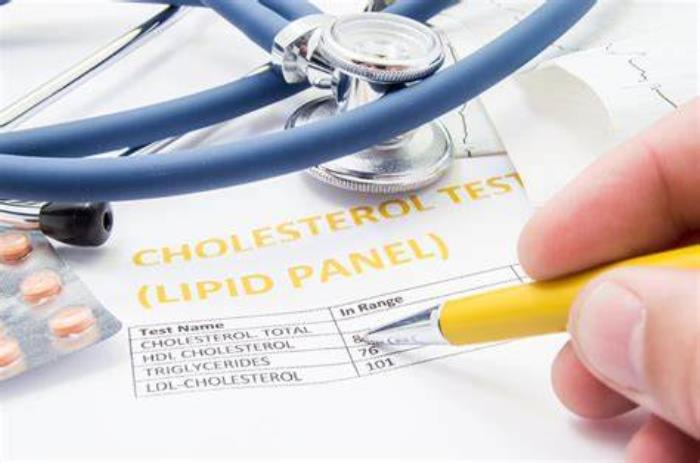After undergoing mitral valve replacement surgery, patients are typically prescribed a range of medications to aid in their recovery, prevent complications, and support heart function. These medications are crucial for managing post-operative symptoms, preventing blood clots, controlling pain, and ensuring the long-term success of the valve replacement. By carefully following a prescribed medication regimen, patients can optimize their recovery and reduce the risk of complications such as infection, stroke, or heart failure.
Why Are Medications Necessary After Mitral Valve Surgery?
Medications play a vital role in the recovery process following mitral valve replacement surgery. The body's natural response to surgery includes inflammation and the risk of blood clot formation, both of which can lead to complications. Medications help control these factors, allowing for a smoother recovery and minimizing the likelihood of post-surgical issues such as heart rhythm problems, blood clots, or infections. Additionally, some medications help optimize heart function and ensure the newly implanted valve operates effectively.
Anticoagulants: Preventing Blood Clots and Stroke After Surgery
One of the most important types of medications prescribed after mitral valve replacement surgery is anticoagulants, commonly known as blood thinners. These medications help prevent the formation of blood clots, which can lead to serious complications such as stroke or deep vein thrombosis (DVT). After valve replacement, especially with mechanical valves, patients are at a higher risk of clot formation, making anticoagulation therapy essential. Common anticoagulants include warfarin and direct oral anticoagulants (DOACs), which work by thinning the blood and reducing clot risk.

Common Anticoagulants Used After Mitral Valve Replacement
Warfarin is one of the most commonly prescribed anticoagulants following mitral valve replacement surgery. It works by inhibiting vitamin K-dependent clotting factors, reducing the likelihood of clot formation. For some patients, newer medications such as direct oral anticoagulants (DOACs) may be prescribed, which offer advantages such as fixed dosing and fewer required blood tests. However, the choice of anticoagulant depends on individual factors, such as the type of valve implanted, the patient's health history, and the risk of bleeding.
Pain Management Medications: Controlling Post-Surgery Discomfort
Pain management is an important part of the recovery process after mitral valve replacement surgery. Medications such as opioids, acetaminophen, and non-steroidal anti-inflammatory drugs (NSAIDs) may be used to control post-surgery discomfort. Opioids may be prescribed for short-term pain relief, but they are typically used sparingly due to their potential for addiction and side effects. Over-the-counter medications like acetaminophen and NSAIDs are often recommended once initial recovery begins to reduce mild to moderate pain. Proper pain management helps ensure a more comfortable and quicker recovery.
Antibiotics: Preventing Infection After Valve Replacement Surgery
Antibiotics are frequently prescribed after mitral valve replacement surgery to prevent infections, which are a potential risk due to the invasive nature of the procedure. Patients may be given antibiotics before, during, and after surgery to reduce the risk of infection at the surgical site or within the heart. Antibiotic therapy is especially important in preventing infective endocarditis, an infection of the heart valves, which can occur if bacteria enter the bloodstream and settle in the heart.
Beta-Blockers: How They Help in Reducing Heart Strain and Managing Heart Rate
Beta-blockers are commonly prescribed after mitral valve replacement surgery to manage heart rate and reduce the workload on the heart. These medications block the effects of adrenaline, helping the heart beat more slowly and efficiently, which can be particularly helpful for patients with arrhythmias or high blood pressure. By reducing heart strain, beta-blockers help protect the heart from excessive stress and allow the heart to function more effectively, improving long-term outcomes after surgery. Beta-blockers also help in preventing the recurrence of certain heart rhythm disturbances and can aid in overall cardiovascular stability.
Diuretics: Managing Fluid Retention After Mitral Valve Replacement
Diuretics are commonly prescribed after mitral valve replacement to help manage fluid retention, which can occur due to heart function changes post-surgery. These medications assist in removing excess fluid from the body, reducing swelling and easing the heart's workload. Monitoring kidney function is important during their use to ensure effective and safe management of fluid balance.
ACE Inhibitors and ARBs: Improving Heart Function Post-Surgery
ACE inhibitors and ARBs (angiotensin receptor blockers) are frequently prescribed following mitral valve replacement to improve heart function. These medications help lower blood pressure and reduce strain on the heart, promoting better heart efficiency. By relaxing blood vessels, they also decrease the risk of complications such as heart failure, helping patients recover faster and preventing further heart damage.
Antiarrhythmic Drugs: Preventing Irregular Heartbeats After Surgery
Antiarrhythmic drugs are used to prevent or manage irregular heartbeats (arrhythmias) that may occur after mitral valve surgery. These medications help stabilize the heart’s electrical activity, reducing the risk of arrhythmias like atrial fibrillation, which can be common in the immediate post-surgery period. Regular monitoring is essential to ensure proper dosing and effectiveness in managing arrhythmias.
Statins: Managing Cholesterol Levels After Mitral Valve Replacement
Statins are often prescribed after mitral valve replacement to control cholesterol levels and reduce the risk of cardiovascular events, including strokes and heart attacks. By lowering bad cholesterol (LDL) levels, statins help prevent the buildup of plaque in the arteries, supporting long-term heart health and improving outcomes after surgery.

Medications for Preventing Blood Pressure Complications
Managing blood pressure is crucial after mitral valve surgery, and medications such as beta-blockers or calcium channel blockers may be prescribed to maintain stable levels. These medications help control heart rate and reduce the risk of complications like high blood pressure, which can strain the heart and interfere with the healing process.
The Importance of Monitoring and Adjusting Medications Post-Surgery
Close monitoring of medications is essential post-surgery to ensure that the dosages are effective and safe. As the patient recovers, the need for certain medications may change, requiring adjustments. Regular check-ups and blood tests help doctors assess the patient’s response to medication and make necessary modifications for optimal heart health.
Potential Side Effects of Medications After Mitral Valve Surgery
While medications are crucial for recovery, they may have side effects. Common side effects include dizziness, fatigue, or gastrointestinal issues, particularly with diuretics and blood pressure medications. It is important for patients to report any adverse effects to their healthcare provider, who can adjust the treatment plan to minimize discomfort and maximize benefits.
How Long Should Post-Surgery Medications Be Taken?
The duration for taking post-surgery medications varies depending on the individual’s recovery progress, the type of surgery, and any underlying conditions. Anticoagulants, for example, may be required for several months, while medications for blood pressure or cholesterol may be needed long-term. Doctors will provide guidance on when it may be appropriate to gradually reduce or stop certain medications based on the patient’s health status.
Personalized Medication Plans: Tailoring Treatment for Individual Patients
A personalized medication plan ensures that each patient receives the most appropriate treatment for their recovery. Factors such as age, overall health, lifestyle, and any pre-existing conditions are considered when prescribing medications. This tailored approach helps improve recovery rates and minimizes the risk of complications, offering the best chance for optimal heart health.
The Role of Follow-Up Appointments in Medication Management
Follow-up appointments play a critical role in managing post-surgery medications. During these visits, doctors assess the patient’s progress, monitor the effectiveness of medications, and adjust doses as necessary. Regular follow-ups help ensure that the patient’s recovery stays on track and that any emerging issues with medications can be addressed early.
Lifestyle Modifications to Complement Medication After Mitral Valve Replacement
Lifestyle changes, such as maintaining a healthy diet, exercising, and managing stress, can greatly complement medications in promoting heart health after mitral valve surgery. These modifications help manage risk factors like high blood pressure and cholesterol, which can enhance the effectiveness of medications and contribute to long-term recovery.
How to Safely Transition Off Medications After Recovery
As recovery progresses, patients may begin to transition off certain medications, especially if their heart function has improved. This process should always be done under the guidance of a healthcare provider to ensure that the patient’s health remains stable. Gradual adjustments can help avoid complications and allow the heart to function effectively without over-reliance on medication.
Latest Advancements in Mitral Valve Disease Treatment
Explore the latest advancements in mitral valve disease treatment. This section covers innovative approaches, including minimally invasive techniques and new medical therapies aimed at improving patient outcomes.
Understanding the Risks of Delaying Mitral Valve Replacement Surgery
Learn about the risks of delaying surgery for mitral valve replacement. This section discusses the complications and potential deterioration of heart function when surgery is postponed.
Conclusion: Medication and Post-Surgery Care for Optimal Heart Health
Post-surgery medication is essential for recovery after mitral valve replacement. By managing fluid retention, improving heart function, and preventing complications like arrhythmias or infections, these medications play a key role in ensuring a smooth recovery. Close monitoring, lifestyle changes, and regular follow-ups are also critical to achieving the best outcomes and supporting long-term heart health.
Best Mitral Valve Replacement Surgery in India
The Best Mitral Valve Replacement Surgery in India is designed to restore heart function in patients with mitral valve disease, providing effective solutions to improve quality of life and heart health.
Best Mitral Valve Replacement Surgeons in India
The Best Mitral Valve Replacement Surgeons in India are skilled in valve replacement techniques, providing personalized care to achieve successful outcomes for patients with mitral valve conditions.
FAQ
What medications are prescribed after mitral valve replacement surgery?
Common medications include diuretics, ACE inhibitors, ARBs, anticoagulants, antiarrhythmic drugs, and statins, depending on the patient’s condition.
How long do I need to take anticoagulants after surgery?
Anticoagulants may be required for several weeks to months after surgery, depending on the risk of blood clots.
Are there any side effects of medications taken after mitral valve replacement?
Side effects may include dizziness, fatigue, gastrointestinal issues, or changes in kidney function, which should be reported to the healthcare provider.
Can I stop taking blood pressure medications after surgery?
Blood pressure medications may be adjusted or discontinued after surgery if blood pressure stabilizes, but this should only be done under a doctor’s guidance.
How do doctors decide which medications are right for me after mitral valve surgery?
Doctors consider the patient’s overall health, any pre-existing conditions, and the specifics of the surgery to tailor a medication plan that best supports recovery and heart function.
Explore the Best Heart Care Resources in India
Find some of the top cardiologist, surgeons and the best heart hospitals in India
Best Heart Hospitals in India
Choosing the right hospital is crucial for successful heart treatments. If you want to explore trusted options, check the list of Best Heart Hospitals in India offering world-class facilities, advanced cardiac care units, and experienced teams for both simple and complex procedures.
Best Cardiologists in India
Finding the right cardiologist can make a huge difference in early diagnosis and long-term heart health. If you are looking for the Best Cardiologists in India, see this curated list of experts who specialize in preventive care, interventional cardiology, and complex heart disease management. Check the full list Best Cardiologists in India.
Best Cardiac Surgeons in India
If you are planning for heart surgery and need top-level expertise, we recommend exploring the Best Cardiac Surgeons in India. These surgeons have a proven record in performing bypass surgeries, valve replacements, and minimally invasive heart operations with excellent outcomes.